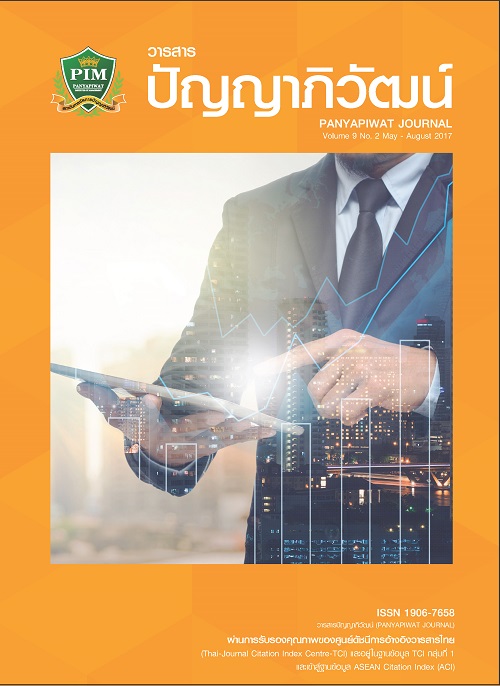ความคิดเห็นของสื่อมวลชน ต่อบทบาทในการเป็นโรงเรียนของสังคม
Main Article Content
บทคัดย่อ
บทความวิจัยเรื่อง “ความคิดเห็นของสื่อมวลชน ต่อบทบาทในการเป็นโรงเรียนของสังคม” เป็นส่วนหนึ่งของโครงการสื่อเป็นโรงเรียนของสังคม ด้วยการสนับสนุนงบประมาณจากสำนักงานกองทุนสนับสนุนการสร้างเสริมสุขภาพ (สสส.) มีวัตถุประสงค์ (1) เพื่อศึกษาความคิดเห็นของนักวิชาชีพต่อการทำตามบทบาทหน้าที่ของตน และ (2) เพื่อทราบแนวทางบูรณาการการทำงานของภาควิชาชีพ วิชาการ และประชาสังคมในการผลักดันให้สื่อเป็นโรงเรียนของสังคม โดยการจัดเสวนากลุ่มจำนวน 9 ครั้งทั่วประเทศ ระหว่างปี 2558-2559
ผลการศึกษาพบว่า สื่อมวลชนเห็นว่าตนได้ทำตามบทบาทที่สำคัญในการ (1) สอดสองดูแล (Surveillance) และรายงานเหตุการณในสังคม (2) สรางความเปนอันหนึ่งอันเดียวกันของสังคม (Correlation) (3) สืบทอดวัฒนธรรมของสังคม (Cultural Transmission) และ (4) ใหความบันเทิง (Entertainment)
อย่างไรก็ตาม มีปัจจัยหลายประการที่ทำให้บทบาทหน้าที่ของสื่อ เป็นการทำหนาที่ที่ไมพึงประสงค (Dsyfunction) ได้แก่ (1) ผู้บริโภคไม่ชอบอ่านเนื้อหาดีๆ จากสื่อ (2) Social Media มีอิทธิพลในการสร้างกระแสข่าวและความรวดเร็ว ทำให้สื่อขาดเวลาในการตรวจสอบ (3) หน้าที่ทางการตลาดหรือธุรกิจทำให้หน้าที่ต่อสังคมลดน้อยลง (4) ไม่มีองค์ความรู้เรื่องสื่อและขาดทักษะ (5) กฎเกณฑ์ที่กำกับสื่อจากภาครัฐ และ (6) กรอบความรู้ของผู้รับสารที่ไม่เท่ากัน
ส่วนประเด็นแนวทางบูรณาการการทำงานของภาควิชาชีพกับภาคอื่นๆ ได้แก่ ภาควิชาการและประชาสังคมในการผลักดันให้สื่อเป็นโรงเรียนของสังคม สามารถทำได้หลายประการ ได้แก่ (1) สร้างหลักสูตรอบรมที่ดึงความแข็งแกร่งของสื่อสังคมออนไลน์มาใช้ (2) เพิ่มพื้นที่สื่อดี (3) ให้ความรู้เรื่องสื่อทุกระดับ และ (4) มีการผลักดันอย่างจริงจังและเป็นรูปธรรมจากภาครัฐ เช่น การเปิดโอกาสให้เข้าถึงกองทุนสื่อสร้างสรรค์อย่างเป็นธรรมและเท่าเทียม
This paper, Opinion of Media Professionals towards their Roles as Social School, is a part of the project “Media as Social School (MASS) mainly sponsored by Thai Health Foundation. This paper aimed (1) to study views of media professionals towards their roles and responsibilities on dat-to-day work as well as (2) to vision the appropriate working direction of media professionals, academics and civil society to promote “Media as Social School Project”. 9 seminars and focus groups were conducted during 2015-2016 throughout the country.
It found that media professionals see themselves fulfilling their roles and responsibilities as following (1) surveillance, (2) correlation, (3) cultural transmission and (4) entertainment. However, dysfunction of media role and responsibility could occur, due to (1) consumers’ preferences to bad news, (2) social media increase speed of reporting, resulting in fact-checking quality, (3) profit-ridden business trend lessened media duty to society, (4) lacking in media literacy and skills, (5) state regulations, and (6) different knowledge of consumers.
The appropriate working direction of media professionals, academics and civil society to promote “Media as Social School Project” included (1) training project in social media literacy, (2) number-up ‘good’ media space, (3) initate media literacy for all groups of people and (4) substantial support and tangible policy from the government.
Article Details
“ข้าพเจ้าและผู้เขียนร่วม (ถ้ามี) ขอรับรองว่า บทความที่เสนอมานี้ยังไม่เคยได้รับการตีพิมพ์และไม่ได้อยู่ระหว่างกระบวนการพิจารณาลงตีพิมพ์ในวารสารหรือแหล่งเผยแพร่อื่นใด ข้าพเจ้าและผู้เขียนร่วมยอมรับหลักเกณฑ์การพิจารณาต้นฉบับ ทั้งยินยอมให้กองบรรณาธิการมีสิทธิ์พิจารณาและตรวจแก้ต้นฉบับได้ตามที่เห็นสมควร พร้อมนี้ขอมอบลิขสิทธิ์บทความที่ได้รับการตีพิมพ์ให้แก่สถาบันการจัดการปัญญาภิวัฒน์หากมีการฟ้องร้องเรื่องการละเมิดลิขสิทธิ์เกี่ยวกับภาพ กราฟ ข้อความส่วนใดส่วนหนึ่งและ/หรือข้อคิดเห็นที่ปรากฏในบทความข้าพเจ้าและผู้เขียนร่วมยินยอมรับผิดชอบแต่เพียงฝ่ายเดียว”
เอกสารอ้างอิง
Center for Communication Policy Study, Sukhothai Thammathirat Open University. (2013). Media Ethics. Bangkok: The Thailand Research Fund. [in Thai]
Chantrawatanakul, S. D. (2013).Newspaper in Search for New Business Model Survival in a Convergent Era. Panapiwat Journal,4(2), 113-126.[in Thai]
Donavanik, J. (2004). Report on (Draft)Operation of Radio and Television Broad casting Business Act.Bangkok: The Thailand Research Fund. [in Thai]
Jenkins,H. (2006). Convergence Culture: Where Old and New Media Collide. USA: Nyupress. Kaewthep, K. (2000). Mass Communication: Theory and Trends. Bangkok: Edison Press Products. [in Thai]
Lasswell, H. (1948). The Structure and Function of Communication in Society. In Schramm, W. (Ed.). (1960). Mass Communications (2nd ed.). Urbana, IL: University of Illinois Press.
Merton, R. (1992). Social Theory and Social Structure. New York: Harper & Row. NPCEU SWEDEN. (2016). Seminar Report :19 Years of Media Reform,Still not going anywhere.Retrieved May 4, 2017, from http://abc.norporchoreu.com/?tag=19-%E0%B8%9B%E0%B8%B5-%E0%B8%9B%E0%B8%8F%E0%B8%B4%E0%B8%A3%E0%B8%B9%E0%B8%9B%E0%B8%AA%E0%B8%B7%E0%B9%88%E0%B8%AD [in Thai]
Pavlik, J. & Mcintosh, S. (2013). Converging Media. New York: Oxford University Press.
Phiphitkul, W. (2004). Report on Media Watch dog Group.Bangkok: The Thailand Research Fund. [in Thai]
Phoovatis, W. (2014). How to Create Social Network Creatively. Srinakharinwirot Research and Development (Journal of Humanities and Social Sciences),6(12), 206-217. [in Thai]
Ramasoota, P. (2003). Report on the Appropriate measures and Guidelines in Regulating Contentin Broadcast Media. Bangkok: The Thailand Research Fund. [in Thai]Rogers, E. M. (2003). Diffusion of Innovations (5th ed.). New York: Free Press.
Satawatin, P. (1998). Mass Communication: Process and Theory (2nd ed.). Bangkok: Phappim. [in Thai]Shaw, K. (2017). Mass Media,New Media and Cutural Media :A Story Telling for Multi-Platform.Bangkok: Foundation for Community and Cultural Media. [in Thai]
Siriyuvasak, U. (2004). Introduction to Mass Communication: Mass Media,Culture and Society(4th ed.). Bangkok: Chulalongkorn University Printing House. [in Thai]
Sudbanthad, S. (2017). Great Evolution of Information Space. Bangkok: Foundation for Community and Cultural Media. [in Thai]
Tangkitvanich, S. & Sutharattakul, T. (2003). Report on Objectives, Desirable Future Scenarios and Principles for Media System.Bangkok: The Thailand Research Fund. [in Thai]
Thai Journalists Association. (2008). Q&A Media Reform.Retrieved May 4, 2017, from http://www.tja.or.th/index.php?option=com_content&view=article&id=3067:2012-11-13-04-01-02&catid=30:corner-ideas [in Thai]
Thai Media Policy Center, Chulalongkorn University. (2013). Research Seminar on Hate Speech.Retrieved July 24, 2014, from https://thainetizen.org/2013/07/online-hate-speech-in-thailand-research-chula/ [in Thai]
Thieler, P. (2017). GR Code for the Blind. Bangkok: Foundation for Community and Cultural Media. [in Thai]
Toffler, A. (1980). The Third Wave.USA: Bantam Books. Trirat, N. & Chaiwat, T. (2004). Report on the Structure and Regulation of Print Media. Bangkok: The Thailand Research Fund. [in Thai]
Vatcharachayakul, N. & Sotanasathien, S. (n.d.). The Adaptation of A DAY magazine in Digital Age. Retrieved July 24, 2016, from http://203.131.210.100/ejournal/wp-content/uploads/2016/09/JCIS59012.pdf [in Thai]
Wright, C. R. (1974). Functional Analysis and Mass Communications. Beverly Hills, CA: Sage Publications.
Yavichai, K. & Toopkeaw, P. (n.d.). Hate Speech on Frontpage: Case of Thairath and Daily News Newspapers. Retrieved July 24, 2016, from http://203.131.210.100/ejournal/wp-content/uploads/2015/07/JCIS57007.pdf [in Thai]
Seminars and Focus Groups
January 2016. Bangkok Art and Culture Center.
February 2016. Faculty of Communication Arts, Rangsit University.
March 2016. Rattanakosin Ballroom, The Sukosol Hotel.
May 2016. Kosa Hotel, Khonkan.
May 2016. Krabi Royal Hotel, Krabi.
May 2016. Thai Journalists Association.
June 2016. Pailin Hotel, Pitsanulok.
June 2016. Bangkok Art and Culture Center.
July 2016. Kosa Hotel, Khonkan.


